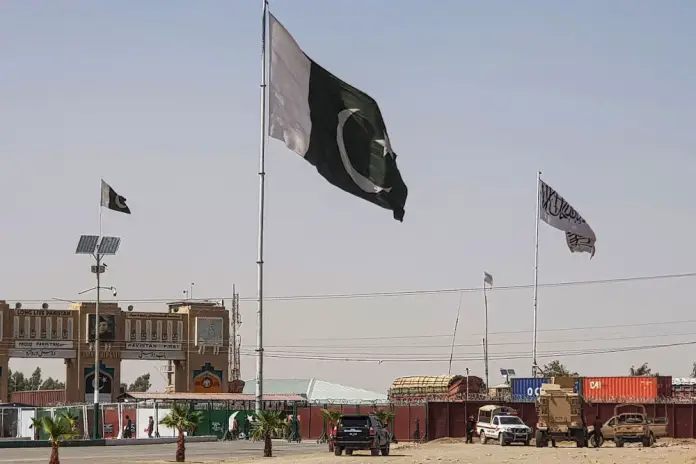History has proved time and again, Pakistan and Afghanistan are more connected than one would actually want to imagine. Of course in terms of culture, ethnicity and geography but when it comes to Taliban, the dynamics of our connections could change in unimaginable ways. Taliban’s failure isn’t an option for Pakistan. It is possibility of their success that seems to be a complex question. What if they succeed in future? Interestingly, how most of the world especially its neighbours, including Pakistan, now see Afghanistan is that they want Taliban both succeed and fail at the same time.
As much as, it is a harsh and an early statement to be made at this point, it is a fear that most of Pakistani intelligentsia have started to come to terms with. More interestingly, this concern in many different ways is also shared by people with religious aspirations. Still struggling with its philosophical quandary, the success of Taliban’s system might prove to be Pakistan’s biggest internal and external challenge that is if it happens. Take Taliban style, deliverance of quick and easy relief and justice for instance, it is bound to create waves among masses, whereas the West will only be left to complain for some ruthless punishments to the criminals, which is only a small part of the whole justice system.
On the other hand, Economy seems to be a challenge for Taliban as world threatens the new Afghan rulers with sanctions. But if they show resilience, they will be able to reap fruits of the China-Pakistan Economic Corridor (CPEC) eventually. And if they are able to stabilise the economy providing secure roads to the international traders along with elimination of corruption, it is bound to be successful and bound to be attributed to Talibanization. Remember, zero corruption is what the brand Taliban is all about. Success in these two areas now doesn’t seem too far-fetched for them. Whereas being an Islamic democratic state itself, Pakistan in terms of its systems and constitution, isn’t anything close to what the system of Taliban is. So let’s be more bitterly honest and explicit.
Everyone wants peace and stability in Afghanistan but not as a result of the system the Taliban aspire to create. Why? Its internal success might have repercussions far and beyond this region. Neither can Pakistan deliver quick and easy justice and relief system nor a corruption-free Pakistan so the comparison itself can cause colossal internal consequences. One could argue that the concern I share is unfounded and there no such possibility of Taliban’s success or the fear of it’s success, but keeping in mind the fate of a much lesser religious Muslim Brotherhood of Egypt with a vote bank of more than sixty percent, the world decided to merrily accept military dictatorship in Egypt. In case we forget, it happened before they were given a chance to succeed or even fail. It was the fear of ‘success’ of Mohamed Mursi and it is the fear of success of Taliban which might come into play once again. This pregnancy may be terminated before it delivers.
Pakistan will bear most of the brunt or the fruit of what Taliban are going to do in the region. Doomed if they fail and probably doomed if they succeed, Taliban are the reality Pakistan cannot shy away with. The role Pakistan playing right now sadly is somewhat of an apologetic defensive spokesperson of Afghanistan. Pakistan can help Taliban succeed, trying to control its consequences, or not get along with them at all. Pakistan must mend its own ways when it comes to corruption and injustice, at least to avoid comparison if not the welfare of its people. In fact that is the only way out if Pakistan doesn’t want Talibanization to seep in. As far as Taliban are concerned, Pakistan naturally is their only true ally. Different as we are, the world sees us with a same lens.
Our success and failures will affect both of us in inconceivable ways. Taliban may think they have formula of peace and stability and are eager to implement it. But ignoring Pakistan along their aspired success may have Pakistan look sideways for its complicated troubles, as Pakistan has done in the past. Arrogance will not help either of us, rather understanding each other will. We simply have to work together at every possible level. As impractical as my last sentence sounds, do we have an option?







